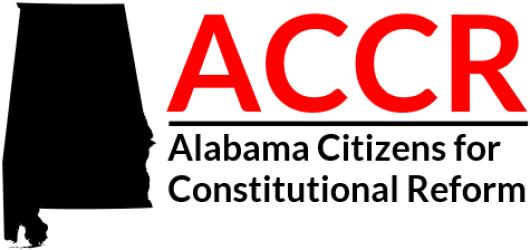By John Archibald | [email protected]
What’s better, you think? Doing the wrong thing in the right way, or the right thing in the wrong way?
As a state, Alabama chose the former.
It was clear on Day 2 of the 1901 Alabama Constitutional Convention, when newly elected convention president John B. Knox got up to speak in favor of white supremacy. As a matter of law.
“If we would have white supremacy,” he said after describing a bunch of racist reasons Alabama should have white supremacy, “we must establish it by law – not by force or fraud.”
He went on to talk of poll taxes and literacy tests, and lauded them because they would give the racists plausible, legal deniability.
“These provisions are justified in law and in morals,” Knox droned on, “because it is said that the negro is not discriminated against on account of his race, but on account of his intellectual and moral condition. There is a difference, it is claimed with great force, between the uneducated white man and the ignorant negro. There is in the white man an inherited capacity for government, which is wholly wanting in the negro.”
“The negro,” he said, “is descended from a race lowest in intelligence and moral preceptitions of all the races of men.”
So Alabama, careful to dot every I and cross every T, built a system of government based on the notion that part of its population is better, and more qualified, and more (this is ironic) just than others.
And they clapped each other on the back, sure they did things the right way.
Yeah right.
Oblivious or dismissive of the fact that it was the wrong thing to do.
As Scott Douglas, executive director of Greater Birmingham Ministries put it in a tweet, it was “classic instruction on why it’s important to those who turn morality upside down to do the wrong thing in the right way. Doing the wrong thing in the wrong way just wouldn’t be right, they moralize.”
And they do. We do.
You might say Alabamians don’t know or care about the words of John Knox these days, that white supremacy means something different now and that times have changed. And they have.
But Knox and that convention set the stage for Jim Crow and impassioned legal defenses.
They gave way to the rallying cry and segregation-born motto of “We dare defend our rights.” Because we have always held our guaranteed individual and state’s rights to be critical and official and God-given – as long as they apply first to those who make the rules.
If you make the rules, it is easy to abide by them. Even when doing wrong.
We have seen it in politicians – Democrats and Republicans have been guilty – who come to power and redraw districts to stay there.
We see it in state legislators who push for laws on “ethics reform” that provide for them a roadmap on how they solicit money and accept gifts and fees and avoid prosecution.
Because it’s more important to do things the right way than it is to do the right thing in the first place.
We see it in Hoover, where a city is so busy claiming to adhere to protocol in the police shooting death of E.J. Bradford that it ignores the fact that a man was shot in the back and the public needs to know why. It is quick to jail protesters who fail to abide by the letter of the law, but slow to look at its own deficiencies and motivations. In the process Hoover tells the world it is perfectly happy to rationalize the wrong thing.
In the manner, if not the style, of John B. Knox.
Maybe it’s time for Alabama to create a new road map for the future. A commitment, perhaps, to do the right thing first. In the right way.
John Archibald, a Pulitzer Prize winner, is a columnist for Reckon by AL.com. His column appears in The Birmingham News, the Huntsville Times, the Mobile Register and AL.com. Write him at [email protected].
